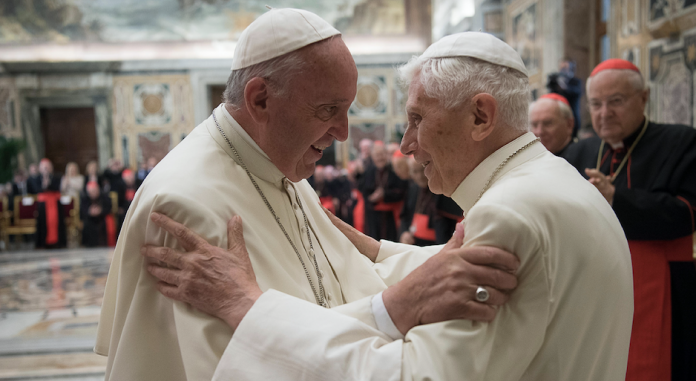
A continuing series on ways to instill a robust Catholic identity in those we teach
BY JOE PAPROCKI
In our exploration of Catholic identity in this column this year, so far we’ve covered our Catholic sacramentality and our commitment to community. In this issue, we turn to the profound respect we are called to show for all human life—from the moment of conception to the moment of natural death.
As I began this column, I was reminded Jesus’ important words: “This is how all will know that you are my disciples, if you have love for one another” (John 13:35). Unfortunately, too often, we sentimentalize Jesus’ new commandment and reduce it to “being nice.” We need to recall that Jesus issued this command immediately after washing his disciples’ feet. The love that Jesus calls his disciples to show is not simply an emotional expression of affection for each other, but a commitment to recognize and respect the dignity of each individual and treat them in a way that expresses that profound respect.
This Catholic commitment to have a profound respect for the dignity of human life is grounded in two major principles. First is our belief that all human beings are created in the image and likeness of God. Even though some of us humans may not always exhibit a “family resemblance” to our Creator when it comes to our actions and attitudes, we assert that the imago dei—“image of God”—is embedded within each and every human being. Second is our understanding of the Incarnation.
God did not choose to become a frog, a tree, a bird, or a rock. God chose to become human in Jesus Christ. This means that human dignity is intimately connected to the divine.
All of this translates into a way of living that is guided by respect for the dignity of all human life, which begins at the moment of conception. We are, however, not just pro-birth … we are pro-life, which means that we continue to show respect for the dignity of human life across the entire spectrum of the human life span. Pope Emeritus Benedict XVI reminded us in his encyclical Deus Caritas Est (God Is Love) that love of God and love of neighbor cannot be separated. Christian love, therefore, is not passive or reactive; it is proactive. Jesus did not need to wash his disciples’ feet, but he went out of his way to show them this profound respect. Jesus did not need to die on the cross for us, but he chose to do so to show his great love for us and to literally embody his own words: “No one has greater love than this, to lay down one’s life for one’s friends” (John 15:13).
In our catechesis, this principle of profound respect for the dignity of human life must become more than a thought to which we give intellectual assent. It needs to be embodied in our words and actions. The corporal and spiritual works of mercy have traditionally concretized for us the notion of “showing love” for one another. Our faith formation efforts must do more than ask young people to memorize and recite these works of mercy as well as the principles of Catholic social teaching; we must be initiating and apprenticing young people into a way of life that is characterized by these acts of mercy and action which express profound respect for the dignity of all human beings.
In my book, Practice Makes Catholic: Moving from a Learned Faith to a Lived Faith, I describe the scene from the famous television classic “A Charlie Brown Christmas”, in which Pigpen has been assigned the role of the innkeeper for their pageant. Unfortunately for him, the role of the innkeeper’s wife is played by Frieda, who complains that Pigpen’s dust is ruining her naturally curly hair. In an attempt to restore Pigpen’s dignity, Charlie Brown suggests that Frieda not look at it as dust but as soil from some ancient civilization, possibly trod upon by Solomon or even Nebuchadnezzar. Immediately, Pigpen looks at Frieda and says, “Sort of makes you want to treat me with more respect, doesn’t it?”
Dignity and respect go hand in hand, and the recognition of human dignity can and must lead to actions that show respect for each and every individual human being.
Joe Paprocki, DMin, is the national consultant for faith formation for Loyola Press. Find his new book, A Church on the Move: 52 Ways to Get Mission and Mercy in Motion, at Loyola Press. Joe blogs at CatechistsJourney.com.
This article was originally published in Catechist magazine, January 2017.
Image credit: L’OSSERVATORE ROMANO




